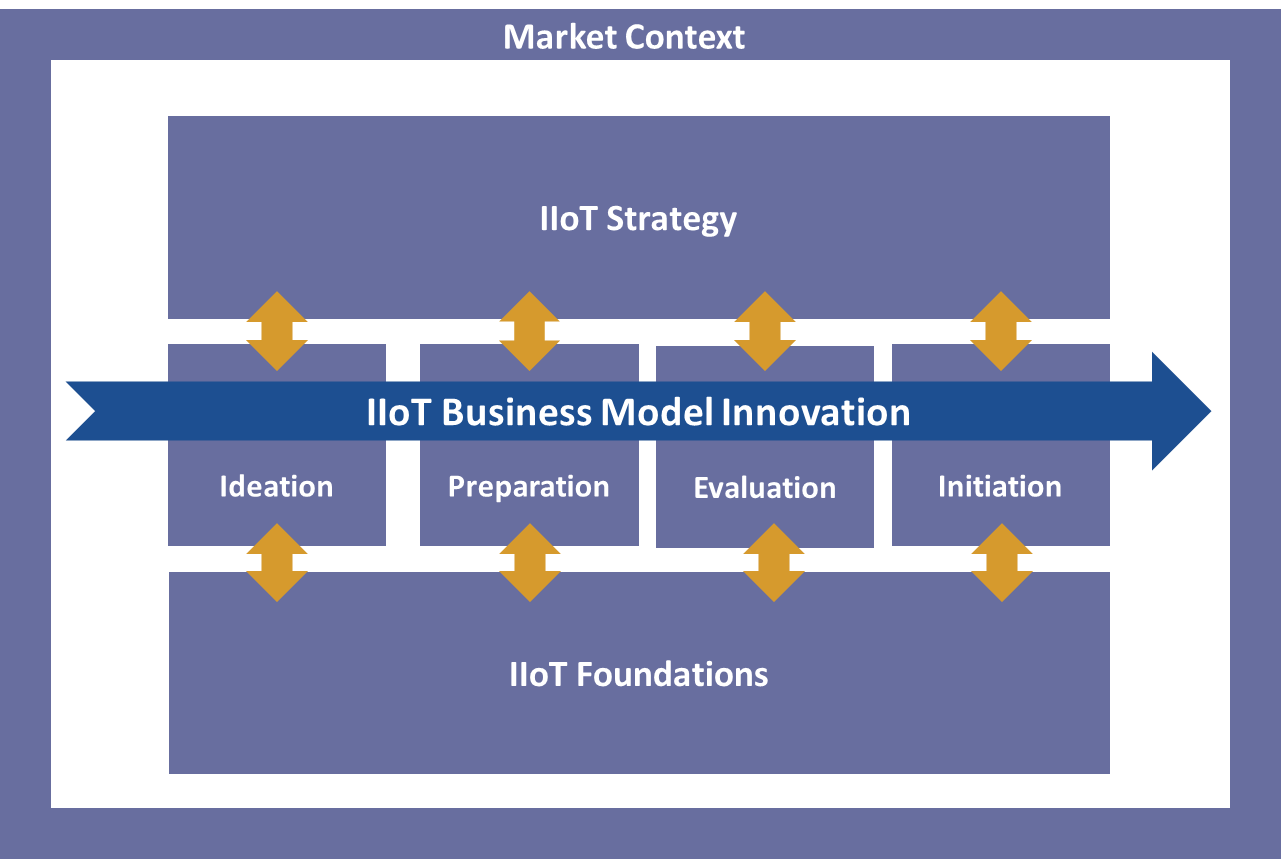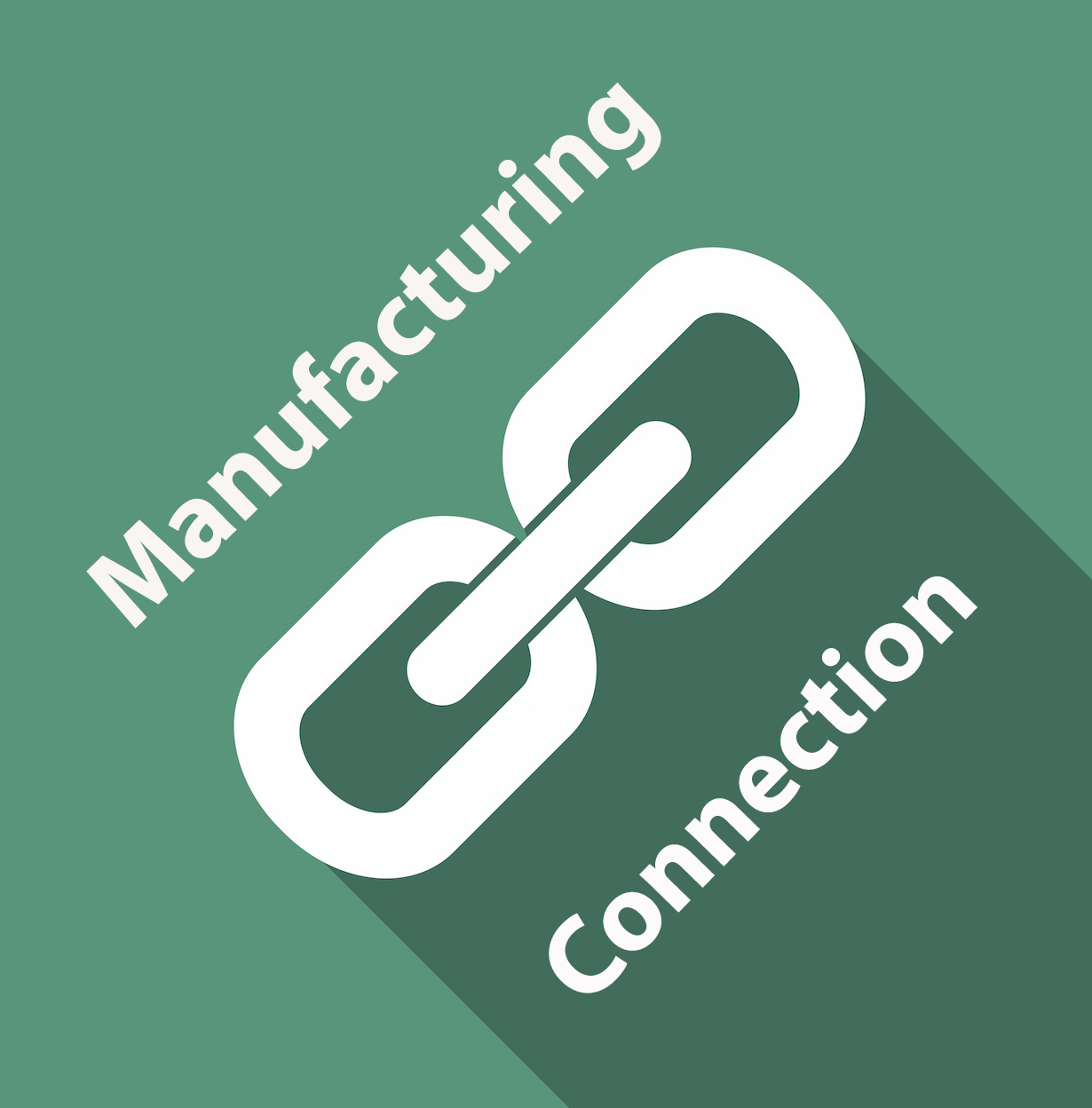
by Gary Mintchell | Jan 13, 2017 | Automation, Internet of Things, News, Operations Management

NI has been active in participating in Internet of Things (IoT) consortiums and building interoperability test beds. It announced this week the opening of the new NI Industrial IoT Lab at its Austin headquarters.
The NI Industrial IoT Lab focuses on intelligent systems that connect operational technology, information technology, and the companies working on these systems. Designed with flexibility for the future, the lab’s operational focus includes areas such as microgrid control and communication, advanced control for manufacturing, and asset monitoring for heavy equipment.
 Additionally, the NI Industrial IoT Lab fosters collaboration among different companies to improve interoperability. In this space, companies with expertise in communications protocols, controller hardware, I/O components, processing elements and software platforms come together to validate end-to-end solutions that can dramatically change the way businesses operate. Companies sponsoring the NI Industrial IoT Lab include: Analog Devices Inc, Avnu Alliance, Cisco Systems, Hewlett Packard Enterprise, Industrial Internet Consortium, Intel, Kalypso, OPC Foundation, OSIsoft, PTC, Real-Time Innovations, SparkCognition, Semikron, Viewpoint Systems and Xilinx.
Additionally, the NI Industrial IoT Lab fosters collaboration among different companies to improve interoperability. In this space, companies with expertise in communications protocols, controller hardware, I/O components, processing elements and software platforms come together to validate end-to-end solutions that can dramatically change the way businesses operate. Companies sponsoring the NI Industrial IoT Lab include: Analog Devices Inc, Avnu Alliance, Cisco Systems, Hewlett Packard Enterprise, Industrial Internet Consortium, Intel, Kalypso, OPC Foundation, OSIsoft, PTC, Real-Time Innovations, SparkCognition, Semikron, Viewpoint Systems and Xilinx.
“We are excited to strengthen partnerships with other world-class technology companies. A working showcase for new technologies can help all companies involved drive breakthrough innovations for utility grids, manufacturing, asset health monitoring and several other industries,” said Jamie Smith, business and technology director at NI.
 The lab is a working showcase for Industrial IoT technologies, solutions and systems architectures. Through demonstrators, such as the on-site Industrial Internet Consortium (IIC) testbeds, participating companies can promote innovative solutions and drive discussions with the domain experts that see the real-world challenges.
The lab is a working showcase for Industrial IoT technologies, solutions and systems architectures. Through demonstrators, such as the on-site Industrial Internet Consortium (IIC) testbeds, participating companies can promote innovative solutions and drive discussions with the domain experts that see the real-world challenges.

by Gary Mintchell | Dec 19, 2016 | Internet of Things, News, Operations Management, Organizations
Collaboration rules the technical world. A professor who influenced me greatly was ex-CIA (ex?). He would proclaim in our international politics classes during the height of the Cold War that politicians might want to close borders, but scientists would never allow it. “Scientists want to publish their findings,” he would say, “so they will publish and leave out a step in the mathematical proof. It would get past censors, but fellow scientists around the world would figure out the missing steps.”
Our world today is rife with politicians trying to close borders. No, it’s not only Trump in America.
Given the political times, I’m encouraged by all the technology collaboration I see. Last week I posted a year end update by Tom Burke of the OPC Foundation highlighting his work in collaborating with other standards bodies. I have been working with MIMOSA (and recently elected Chief Marketing Officer). This organization has also been working with a variety of organizations.
 Last week came news of another collaboration. The Industrial Internet Consortium (IIC), the global, member-supported organization that promotes the accelerated growth of the Industrial Internet of Things (IIoT), announced it has signed a memorandum of understanding (MoU) with the China Academy of Information and Communications Technology (CAICT).Under the agreement, the IIC and CAICT will work together to help ensure interoperability for the industrial Internet in China.
Last week came news of another collaboration. The Industrial Internet Consortium (IIC), the global, member-supported organization that promotes the accelerated growth of the Industrial Internet of Things (IIoT), announced it has signed a memorandum of understanding (MoU) with the China Academy of Information and Communications Technology (CAICT).Under the agreement, the IIC and CAICT will work together to help ensure interoperability for the industrial Internet in China.
The agreement is one of a number of agreements made by the IIC’s newly formed Liaison Working Group.
Joint activities between the IIC and CAICT will include:
- Identifying and sharing best practices
- Collaborating on testbeds and research and development projects
- Realizing interoperability by harmonizing architecture and other elements
- Collaborating on standardization
“We look forward to working with the China Academy of Information and Communications Technology to help further the development of the industrial Internet throughout China,” said Wael William Diab, Chair, IIC Liaison Working Group and Senior Director, Huawei. “We’re especially excited about joint activity on testbeds and research and development projects that will help advance the adoption of the industrial internet.”
“We highly value the cooperation between CAICT and the IIC,” said Mr. Xiaohui YU, CTO of CAICT. “The collaboration with the IIC will help establish tight relationships between the IIC and Chinese entities and organizations, such as the AII Alliance, and will develop, facilitate and enhance the industrial Internet.”
The Liaison Working Group is the gateway for formal relationships with standards and open-source organizations, consortia, alliances, certification and testing bodies and government entities/agencies.
China Academy of Information and Communications Technology (CAICT) is a research academy under the Ministry of Industry and Information Technology with over 2,400 employees. A specialized think-tank for the government, and an innovation and development platform for the industry, CAICT holds a service portfolio that covers the areas of information and communication technology, the integration of ICT and industries, such as 5G, Internet IoT and industrial Internet, cloud computing, big data, Intelligent manufacturing etc.
As a leading think-tank and platform in ICT field of China, it contributes to the development and innovation of the country and the ICT industry by providing support and services in terms of national strategies, plans, policies, standards, technology labs, testing and certification etc. CAICT is the national core supporting organization for industrial Internet, intelligent manufacturing and Internet relevant actions to the Chinese government, and is involved in the drafting of the “Internet+ action plan,” “Made in China 2025,”and other national strategies and guidance on IoT, Cloud computing, big data and Broadband China, etc. CAICT is currently the leading organization to promote the development of industrial Internet of China.
The Industrial Internet Consortium is a global, member-supported, organization that promotes the accelerated growth of the Industrial Internet of Things by coordinating ecosystem initiatives to securely connect, control and integrate assets and systems of assets with people, processes and data using common architectures, interoperability and open standards to deliver transformational business and societal outcomes across industries and public infrastructure. The Industrial Internet Consortium is managed by the Object Management Group (OMG).

by Gary Mintchell | Nov 29, 2016 | Internet of Things, News, Operations Management, Organizations, Standards

IIoT Business Model
In another advancement for the Industrial Internet of Things, The Industrial Internet Consortium (IIC), the global, member-supported organization that promotes the accelerated growth of the Industrial Internet of Things (IIoT), announced the publication of the Business Strategy and Innovation Framework (BSIF). The BSIF helps enterprises to identify and analyze issues that must be addressed to capitalize on the opportunities emerging within the IIoT.
“Everybody knows that the Industrial Internet of Things will completely transform the way that business works. What’s not clear is exactly how to deploy these new IIoT concepts to best effect,” said Jim Morrish, Chair of the Business Strategy Task Group, and Founder and Chief Research Officer, Machina Research. “What the IIC’s Business Strategy and Innovation Framework provides is a toolkit for identifying, prioritizing and initiating the deployment of those crucial IIoT initiatives. It’s a significant step forward for the IIoT industry in terms of working to capitalize on the huge opportunities presented by this new technology wave.”
The BSIF serves as a reference document for chief executives in enterprises planning to engage in IIoT concepts. A single-source compendium of the issues and challenges enterprises should consider before they deploy IIoT initiatives, the BSIF details frameworks and concepts to help enterprises increase value for users, customers and partners while at the same time helping to reduce market and technical uncertainties.
The BSIF outlines a comprehensive set of best practices for companies engaging in IIoT, but companies are free to adopt a lighter touch or use an existing internal project model, especially within smaller companies. Alternatively, a range of project support processes may already be in place and the approach documented in the BSIF may be used to enhance existing infrastructures to address new IIoT opportunities (particularly for larger companies).
“The IIC’s Business Strategy and Innovation Framework is an important industry milestone,” said Jim Nolan, EVP, IoT Solutions, InterDigital. “It offers timely, strategic guidance to the many organizations that are beginning to implement IIoT solutions.”
The BSIF is the most in-depth Industrial IoT-focused business strategy framework comprising expert vision, experience and business strategy best practices from IIC members, including Bosch Software Innovations, InterDigital, Hewlett Packard Enterprise, and Machina Research. The BSIF is available free of charge. For more information about the BSIF, click here.
The Business Strategy and Innovation Framework provides a high-level identification and analysis of issues that any enterprise will need to address to capitalize on the opportunities emerging from this current revolution that is the IIoT. This comprehensive document is a product of the Business Strategy Task Group, a strategy-focused task group within the Industrial Internet Consortium’s Business Strategy and Solution Lifecycle Working Group.
The Business Strategy and Innovation Framework describes the requirements to succeed in IIoT:
- An IIoT strategy and goals
- A structured framework to target and select the right IIoT opportunities
- A system in place to identify, assess and initiate IIoT opportunities
IIoT requires enterprises to rethink their current business models. This is necessary regardless of whether they actually adopt IIoT solutions internally: Industry is moving toward IIoT adoption, and enterprises that keep pace with this trend will undoubtedly have a strong competitive advantage.
Contributors to the Business Strategy and Innovation Framework dedicated their valuable time and expertise in authoring, editing and other ways. In particular, we would like to thank the following contributing members and their organizations:
- Veronika Brandt – Bosch Software Innovations
- Ken Figueredo – InterDigital, Inc.
- Steve Haldeman – Hewlett Packard Enterprise
- Jim Morrish – Machina Research, Chair of the Industrial Internet Consortium Business Strategy Task Group

by Gary Mintchell | Nov 17, 2016 | Automation, Networking, News, Organizations
Time-Sensitive Networking holds the promise for great advances in industrial networking when it gets adopted for deterministic high-speed Ethernet. The Industrial Internet Consortium (IIC) has taken a leading role in advancing the standard. Belden Inc. has joined the IIC Time-Sensitive Networking (TSN) Testbed, which aims to improve multi-vendor interoperability and to display the value of the IEEE 802.1 Ethernet standards for time-sensitive networking in a manufacturing ecosystem.
“By enabling a single Ethernet network to deliver time-guaranteed messages for both mission-critical and time-sensitive applications, while simultaneously delivering high-bandwidth, supervisory, data collection, video and other traffic, TSN fulfils a critical need in bringing the Industrial Internet of Things (IIoT) to manufacturing environments,” said Jeff Lund, senior director of product line management at Belden and co-chair of the IIC marketing working group. “Belden has been a leading participant in the IEEE standardization effort of TSN since 2009 and we’re excited to be at the point where that hard work is now demonstrated in a multi-vendor environment. We hope our many years of experience with TSN will add valuable insight to the testbed and ensure it delivers on its mission.”
The TSN Testbed was on display at the 2016 IoT Solutions World Congress in Barcelona, Spain, on Oct. 25-27. Event attendees viewed live demonstrations of the testbed, which includes Hirschmann’s prototype TSN-enabled RSP Ethernet switches, and see first-hand the possibilities TSN enables for industrial networks.
“The addition of Belden to our TSN Testbed will help bring our collective efforts one step closer to reality – as we all work together in the pursuit of converging IT and operational technologies,” said Dr. Richard Soley, executive director of the IIC. “Testbeds serve as a center of innovation, and we know Belden’s TSN experience will help us achieve our goal. This testbed in particular seeks to show the value of TSN technology, as well as identify and address any implementation challenges to continue improving the standards.”
Following the event, the testbed will be moved to National Instruments’ headquarters in Austin, Texas. In addition to National Instruments, Belden is working alongside leading industrial companies, including Schneider Electric and Bosch Rexroth, among others.

by Gary Mintchell | Nov 8, 2016 | Internet of Things, News, Operations Management, Organizations
The Industrial Internet Consortium has been consistently in the news lately. Members have been added and testbeds established. Here is another announcement furthering the cause of collaboration, and one hopes, interoperability in the Internet of Things (IoT) space.
The Industrial Internet Consortium (IIC), the global, member supported organization that promotes the accelerated growth of the Industrial Internet of Things (IIoT), announced it will collaborate with the IoT Acceleration Consortium (ITAC) to further the development of Internet of Things (IoT) in numerous industries.
The goals of the cooperation are to promote the digital economy by preventing fragmentation and to harmonize various aspects of IoT. Joint activities will include: · Identifying and sharing best practices · Collaborating on test beds and research and development projects · Realizing interoperability by harmonizing architecture and other elements · Collaborating on standardization · Other activities to which both parties agree
“We were delighted to sign the Memorandum of Understanding with the IoT Acceleration Consortium,” said Dr. Richard Soley, Executive Director of the Industrial Internet Consortium. “Both consortiums share mutual goals and we look forward to working closely with ITAC on testbeds and research and development projects to advance the adoption of the industrial Internet.”
The IoT Acceleration Consortium (ITAC) aims to combine the strengths of government, industry, and academia to build a structure for developing and demonstrating technologies related to the promotion of Internet of Things (IoT). It also aims to create and facilitate new business models. ITAC promotes the development, demonstration, and standardization for IoT-related technologies and the creation of various IoT-related projects and recommendations required to run those projects.
The Industrial Internet Consortium (IIC) is a global, member supported, organization that promotes the accelerated growth of the Industrial Internet of Things by coordinating ecosystem initiatives to securely connect, control and integrate assets and systems of assets with people, processes and data using common architectures, interoperability and open standards to deliver transformational business and societal outcomes across industries and public infrastructure. The Industrial Internet Consortium is managed by the Object Management Group (OMG).


 Additionally, the NI Industrial IoT Lab fosters collaboration among different companies to improve interoperability. In this space, companies with expertise in communications protocols, controller hardware, I/O components, processing elements and software platforms come together to validate end-to-end solutions that can dramatically change the way businesses operate. Companies sponsoring the NI Industrial IoT Lab include: Analog Devices Inc, Avnu Alliance, Cisco Systems, Hewlett Packard Enterprise, Industrial Internet Consortium, Intel, Kalypso, OPC Foundation, OSIsoft, PTC, Real-Time Innovations, SparkCognition, Semikron, Viewpoint Systems and Xilinx.
Additionally, the NI Industrial IoT Lab fosters collaboration among different companies to improve interoperability. In this space, companies with expertise in communications protocols, controller hardware, I/O components, processing elements and software platforms come together to validate end-to-end solutions that can dramatically change the way businesses operate. Companies sponsoring the NI Industrial IoT Lab include: Analog Devices Inc, Avnu Alliance, Cisco Systems, Hewlett Packard Enterprise, Industrial Internet Consortium, Intel, Kalypso, OPC Foundation, OSIsoft, PTC, Real-Time Innovations, SparkCognition, Semikron, Viewpoint Systems and Xilinx. The lab is a working showcase for Industrial IoT technologies, solutions and systems architectures. Through demonstrators, such as the on-site Industrial Internet Consortium (IIC) testbeds, participating companies can promote innovative solutions and drive discussions with the domain experts that see the real-world challenges.
The lab is a working showcase for Industrial IoT technologies, solutions and systems architectures. Through demonstrators, such as the on-site Industrial Internet Consortium (IIC) testbeds, participating companies can promote innovative solutions and drive discussions with the domain experts that see the real-world challenges.

 Last week came news of another collaboration. The
Last week came news of another collaboration. The 






